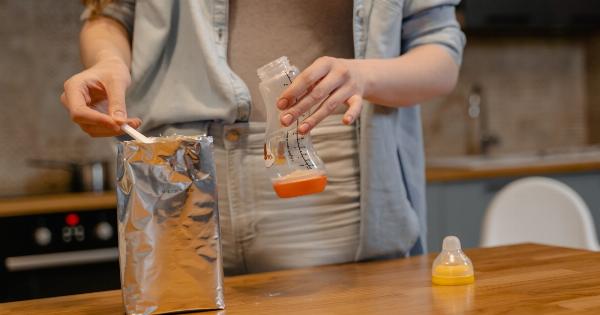Postpartum body is one of the most sensitive issues for new moms. After carrying the baby for nine months and giving birth, the next journey is to recover from the physical changes.
The process of bringing the body back to the pre-pregnancy stage takes time and requires patience. Many factors influence the duration to recover from the postpartum scenario. Some moms may have a quick recovery while others may take longer. In this article, we will discuss how much time it takes to recover your postpartum body.
Factor 1: Type of Delivery
The type of delivery is one of the significant aspects of postpartum recovery. Women who have a vaginal delivery may recover faster than those who have a c-section. The recovery period for a cesarean section may take up to six weeks or more.
On the other hand, if you have a vaginal delivery, you may need around four to six weeks to recover. However, the recovery time also depends on the specific circumstances of each woman.
Factor 2: How Active You Were During Pregnancy
The level of activity during pregnancy also plays a significant role in postpartum recovery. Women who were active before and during pregnancy tend to recover faster.
Those who continue their exercise regime after delivery may also see a faster recovery process. In contrast, women who were sedentary before pregnancy or had complications during pregnancy may experience a slower recovery process. However, doctors recommend avoiding any vigorous exercise until at least six weeks after delivery.
Factor 3: Breastfeeding
Breastfeeding plays an essential part in postpartum recovery. It helps new mothers to lose weight and shrink the uterus. Breastfeeding may also reduce the risk of postpartum depression and other health complications.
However, the duration of breastfeeding may vary from person to person. Therefore, the advantages of breastfeeding can be different for each mom.
Factor 4: Genetics
Genetics can also influence postpartum recovery. Some women have a naturally high metabolism rate, which can aid the weight loss process. On the other hand, some women may have slower metabolism rates, which may lead to a slower recovery process.
Factor 5: Hormones
After giving birth, there is a change in hormones, which can lead to mood swings, depression, and other complications. Hormones can also impact the postpartum recovery process.
The hormone called Relaxin helps the pelvic joints to relax and prepare for delivery. After delivery, the hormone level returns to normal, which may lead to some difficulties in recovery.
Factor 6: Diet and Nutrition
Diet and nutrition play an essential role in postpartum recovery. Women who maintain a healthy diet and good nutrition content tend to recover faster.
A diet rich in fruits, vegetables, lean proteins, and whole grains can help in losing weight and promoting overall health. However, doctors recommend waiting six to eight weeks to start any strict weight-loss diets.
Factor 7: Sleep
Sleep is crucial during postpartum recovery. New moms need plenty of sleep to help their bodies repair. However, with the baby’s feeding schedule, moms may experience sleep deprivation, which may lead to slower recovery.
Therefore, it is recommended to sleep when the baby sleeps and take naps during the day if possible.
Factor 8: Support System
A strong support system can help new moms cope better with the physical, emotional, and mental changes that follow childbirth. Family, friends, and partners can provide emotional and physical support, which can speed up the recovery process.
Factor 9: Prior Pregnancy Complications
Prior pregnancy complications can complicate postpartum recovery. Such complications may include gestational diabetes, preeclampsia, or any other medical conditions.
The recovery period may take longer for women experiencing complications during pregnancy.
Conclusion
The recovery process for postpartum body may vary for different women.
Factors such as type of delivery, level of activity, breastfeeding, genetics, hormones, diet and nutrition, sleep, support system, prior pregnancy complications can influence the recovery process. However, with proper care and patience, new moms can recover postpartum body. It’s important to avoid comparing yourself to others and to remember that every mom’s journey is different.































